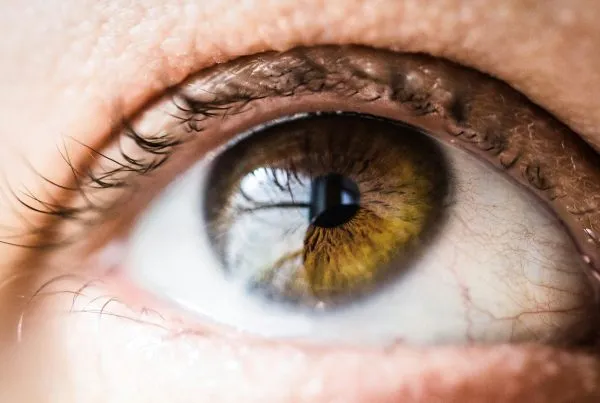Cleaning and Maintenance Tips Your Prescription Glasses
Introduction:
Your glasses do a lot for you. They help you see clearly, enhance your style, and support you in your daily activities. But are you doing enough for them? Proper care can significantly extend the lifespan of your prescription glasses, ensuring you get the most out of your investment. From cleaning smudged lenses to proper storage, small habits can save you time and money in the long run. In this guide, we’ll explore essential tips for maintaining your prescription glasses, keeping them looking new and functioning at their best.
The Importance of Regular Cleaning
Everyday wear exposes your glasses to dust, oils from your skin, environmental pollutants, and fingerprints. Over time, these contaminants can accumulate, leading to blurry vision and potential scratches if not cleaned properly.
Best Practices for Cleaning:
- Rinse with Lukewarm Water: Before wiping your lenses, always rinse them under lukewarm running water. This removes dust and debris that could scratch the lenses when wiped.
- Use a Gentle Cleaner: Apply a drop of mild, lotion-free dish soap to each lens. Gently rub both sides of the lenses and all parts of the frame, including the nose pads and ear pieces.
- Rinse Thoroughly: Ensure all soap residue is washed away. Soap left on the lenses can cause smearing when you dry them.
- Dry with a Microfiber Cloth: Use a clean, lint-free microfiber cloth to gently dry the lenses and frame. Avoid using paper towels, tissues, or your shirt, as these can scratch the lenses or leave lint.
- Inspect for Smudges: Hold your glasses up to light to check for any remaining smudges or streaks. If necessary, repeat the cleaning process.
What to Avoid:
- Harsh Chemicals: Never use household cleaners like window cleaner, bleach, or ammonia-based products. These can damage lens coatings and degrade the frame material.
- Hot Water: Avoid using hot water, which can damage lens coatings and warp certain frame materials.
Proper Handling Techniques
How you handle your glasses daily can affect their condition over time.
Tips for Handling:
- Use Both Hands: When putting on or removing your glasses, use both hands. This prevents stress on the hinges and keeps the frame aligned.
- Avoid Placing Glasses Face-Down: Always place your glasses with the lenses facing upward to prevent scratches.
- Keep Them Off Your Head: Wearing glasses on top of your head can stretch out the frames and deposit oils from your hair onto the lenses.
Safe Storage Practices
Proper storage is crucial when you’re not wearing your glasses.
Storage Guidelines:
- Use a Protective Case: Store your glasses in a hard-shell case to protect them from damage. Soft cases offer minimal protection against crushing or bending.
- Avoid Extreme Temperatures: Do not leave your glasses in hot cars or near heat sources. High temperatures can warp frames and damage lens coatings.
- Keep Away from Chemicals: Store glasses away from household chemicals or areas where aerosol sprays are used.
Regular Maintenance Checks
Routine maintenance can catch minor issues before they become significant problems.
Maintenance Tips:
- Inspect Screws and Hinges: Periodically check for loose screws in the hinges. Tighten them gently with a small screwdriver designed for eyeglasses.
- Adjust Fit as Needed: If your glasses slide down your nose or feel uneven, visit your optician for an adjustment. Do not attempt to bend the frames yourself, especially if they’re metal or have spring hinges.
- Replace Nose Pads: Over time, nose pads can become discoloured or brittle. They can be replaced easily by your optician.
Lens Care and Protection
Protecting your lenses ensures optimal vision and prolongs their usability.
Lens Protection Strategies:
- Apply Anti-Reflective Coatings: Consider lenses with anti-reflective coatings to reduce glare and make cleaning easier.
- Use Lens Cleaner Sparingly: If you prefer lens cleaning sprays, use products specifically designed for eyeglasses. Apply the spray to the cloth, not directly on the lenses.
- Beware of Abrasives: Keep your glasses away from sand, dust storms, or other abrasive environments.
Dealing with Specific Lens Types
Different lens materials and coatings may require special care.
For Polycarbonate and Trivex Lenses:
- These lenses are more impact-resistant but can scratch easily. Handle them with extra care and always use a microfiber cloth for cleaning.
For High-Index Lenses:
- High-index lenses are thinner and lighter but may be more prone to reflections. Anti-reflective coatings are beneficial, and the same gentle cleaning methods apply.
Common Mistakes to Avoid
- Using Clothing to Clean Lenses: Fabrics can carry dust and fibres that scratch lenses. Always use a proper cleaning cloth.
- Delaying Repairs: Ignoring loose parts or misalignments can lead to more significant damage. Address issues promptly.
- DIY Repairs on Complex Issues: While tightening a screw is fine, complex repairs should be left to professionals to avoid voiding warranties or causing irreparable damage.
When to Replace Your Glasses
Even with excellent care, glasses will eventually need replacement.
Signs It’s Time for New Glasses:
- Updated Prescription: Vision changes over time. Regular eye exams ensure your prescription is current.
- Visible Damage: Scratches, cracks, or peeling coatings on lenses can impair vision.
- Frame Wear and Tear: Bent frames, broken hinges, or corroded metal can affect fit and comfort.
Conclusion
Taking care of your prescription glasses doesn’t have to be time-consuming. With regular cleaning, proper handling, and mindful storage, you can extend the life of your eyewear significantly. Not only does this protect your investment, but it also ensures that you always see the world clearly and look your best. Incorporate these maintenance tips into your routine, and your glasses will thank you by providing optimal performance for years to come.





